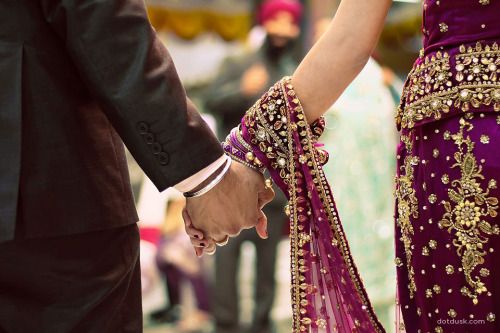THE MUSLIM WEDDING TRADITION
I have previously talked about the Japanese tradition and the Jewish tradition. Having spent a couple of years in Tunisia, I have witnessed several gorgeous muslim weddings. Aside from being the occasion of an opulent celebration with fantastic meals and entertainment, it is first a very serious religious affair. In Islamic religion, the mariage is viewed as a contract between the couple and Allah. It is actually an obligation, and a proper contract is required for the couple who remain separate during the ceremony and reception. That’s perhaps one of the main reasons why muslim weddings are so original. Can you picture a room with 250 ladies, celebrating the luck of one bride?
The marriages are no longer held in mosques by a Madhun ( islamic officiant ), any non religious venue can work. That make things easier for the wedding planner, as Paris abounds with gorgeous locations for extravagant weddings ! Another practical fact, is that any Muslim who understands Islamic tradition can officiate a wedding. I have listed below the important steps of the muslim wedding for you to get a better understanding. As Muslims are spread across the world, each county has different customs and cultures, so do these differences play into the wedding ceremonies. Depending on the country , men and women are not segregated for exemple. And depending on the country, the terms are different as they are more language-specific. Such as Arabic words compared to Urdu words.
The Khitbah
This is the engagement period in which the groom and bride get to know each other and their families. The couple can’t stay alone with each other and, needless to say, intimate relations during this time are strictly forbidden. You just have to be patient! Another interesting fact is that either the bride or the groom can decide to return the engagement ring to break the engagement, without going through the procedure of talag (divorce). This time allows both of them to be certain of their decision.
The Meher
Any muslim wedding begins with this statement which specifies the amount the groom had given as a dowry. It gives the bride a guarantee of freedom and security. The document contains two parts : a first participation before the consummation of the marriage and a remainder due given to the bride throughout the remainder of her life. Nowadays, the ring is often used as the first prompt. Unless the marriage breaks up before consummation, the gifts belong to the woman.
The Nikah
This is the ceremony during which the groom proposes to the bride. However, it can happen that they are both separate in different rooms, so they are allowed to use a wali ( representative ). It is wise to choose a trustworthy person!! During the Nikah, the details of the contract are explained clearly. The groom needs to have at least two witnesses to make it valid and to ensure they are both acting with free will, the word ‘Gabul’ must be repeated 3 times–which means that they accept the terms, then they usually share a piece of fruit! The mariage is sealed, but only becomes legal once all the witnesses sign the contract. The bride & groom become permissible for each other after this ceremony. It is important to note that all actions which show disrespect to the islamic culture must be avoided.
The Durum
Traditionally, the bride and groom don’t exchange vows during the ceremony unlike many other religions. Instead, they listen carefully to the officiant who speaks about the meaning of mariage, adding some reading of the Quran , and offer his durum ( blessing )
The Walimah
It’s a celebration during which the groom and bride families get to know each other. It is a formal announcement of the formation of a new big family. In various countries, Muslims have different ways to celebrate walimah. It can also be done before or at the same time of the Rukhsati.
The Rukhsati
Then comes the anticipated intimate moment for the couple. Rukhsati means the consummation of marriage. After Rukhsati, the spouses begin living together as husband and wife. It usually takes place a few hours after the Nikah. In some arabic countries, it is commony called “dukhul”. However, if the bride wants to finish her studies, or the family prefers to have a big party to invite relatives, the Rukhsati can be postponed for few months or years since this is permissible in Islamic culture.
Depending on the country, the terms are different as they are more language-specific. Such as Arabic words compared to Urdu words. With that said, I hope that gave you a little glimpse of the muslim traditions.
Sumptuous Events, your destination wedding planner in Paris.



